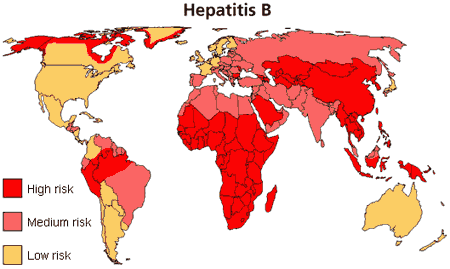
The fight against hepatitis B
The fight against hepatitis B
Dr Teerha Piratvisuth Special to The Nation July 16, 2013 1:00 am
In Thailand, chronic hepatitis B is the most significant factor leading to liver cancer. Up to 75 per cent of Thais with liver cancer had previously had chronic hepatitis B.
The hepatitis B virus is the most commonly transmitted virus in the world. Two billion people have contracted this virus at one point in their lives, which means that one out of three have once had hepatitis B. More importantly, 350 million to 400 million people develop chronic hepatitis B.
Between 6 and 12 per cent of Thais over 40 develop chronic hepatitis B. After the launch of a campaign to promote the anti-hepatitis B vaccination of new-born infants in 1992, the rate of infection fell to 4 to 6 per cent, or four million Thais.
How do we catch the hepatitis B virus?
* Mother to unborn child
This form of transmission is the most common cause of infection in Thailand. It is expected that 90 per cent of pregnant women who are infected with hepatitis B will pass the virus on to their unborn baby.
* Sexual contact
Hepatitis B can be contracted via sexual activities. A married person whose spouse has a chronic infection of the virus should take a test to see if they have contracted the virus. In case that no virus is found, it is advised that they take a course of three vaccine injections.
* Sharing syringes or needles
This form of transmission can be caused by the use of syringes, tattooing, acupuncture, or the use of shared contaminated items, including toothbrushes, razor blades, etc.
* Infection from the lymph of an infected person through open wounds or conjunctiva
Once the hepatitis B virus has attacked the cells of the liver, it will split and cause acute hepatitis. Patients will have low fever, feel tired, lose their appetite, and experience pain in the lower right side of the abdomen.
After having these symptoms for five to seven days, the patient will pass dark urine and develop jaundice. At this stage, the patient will recover from the jaundice and the hepatitis B virus, and will also recover from the acute hepatitis within one to three months. If the disease develops in the liver for over six months, it will become chronic hepatitis B.
Statistically, around 3.5 per cent of adults with acute hepatitis B virus have a tendency to develop chronic hepatitis B, while over 90 per cent of newborn babies who catch the disease will become chronic hepatitis B virus carriers.
More importantly, over 90 per cent of babies with the hepatitis B virus will not display the symptoms of acute hepatitis. The disease will not heal. Instead, it will develop into chronic hepatitis B virus, damaging liver cells and causing scar tissue, which will eventually lead to cirrhosis in 20 to 25 per cent of cases within eight to 10 years.
Annually, cirrhosis is found to result in a lung failure in 3 to 5 per cent of those infected and develops into liver cancer in around 3.8 per cent of the infected population. In Thailand, chronic hepatitis B is the leading cause of liver cancer. Around 70 to 75 per cent of Thai patients with liver cancer have a history of chronic hepatitis B.
More importantly, the hepatitis B virus can cause liver cancer regardless of whether patients develop cirrhosis. However, such a possibility is lower than in patients who develop cirrhosis.
Dr Teerha Piratvisuth is a specialist in liver and gastroenterology at Samitivej Sukhumvit Hospital’s Liver and Digestive Institute. |Call (02) 711 8822-4.